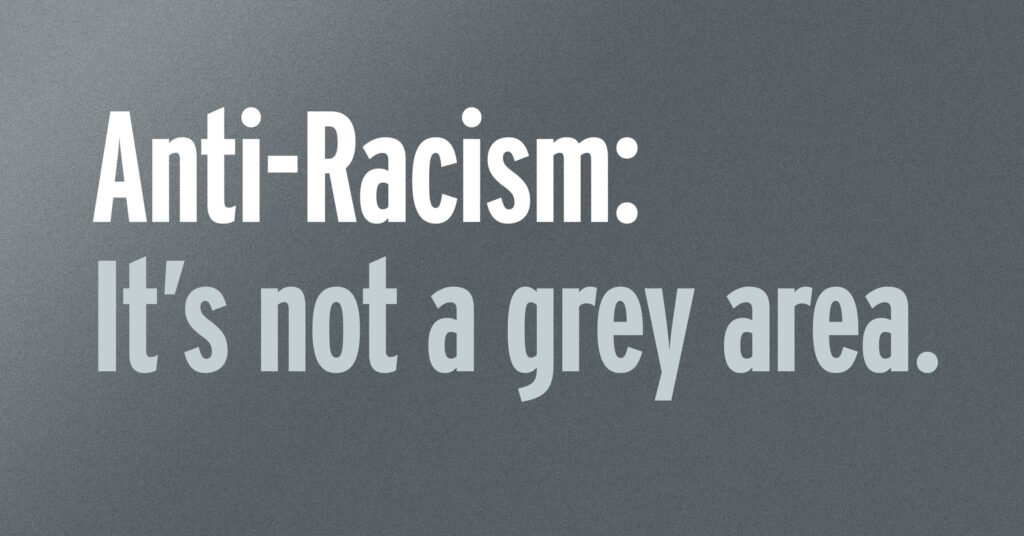Anti-Racism: Black History is Happening Now
February is Black History Month – but every day of the year is history in the making.
Black History Month traces its roots to 1925, when historian Carter G. Woodson and the Association for the Study of African American Life and History (ASALH) established the first Black History Week. Their goal was to highlight the achievements and contributions of Black individuals, challenging the widespread suppression of Black history in mainstream narratives. The second week of February was chosen to align with the birthdays of Abraham Lincoln and Frederick Douglass, both significant figures in Black history. Over time, this initiative grew into the month-long observance we now recognize and has expanded beyond the US to the world.
When discussing racism, the U.S. is often portrayed as the main perpetrator of anti-Black oppression due to its history of slavery and segregation. Canada, in contrast, is frequently distanced from the same history in oppression and discrimination, resulting in a narrative that overlooks Canada’s active complicity in the oppression of Black people. Even after slavery was abolished in 1834, Black Canadians continued to face systemic racism, segregation, and exclusion through White-focused policies and racist attitudes. Racial discrimination persisted well into the 20th century and beyond.
With that in mind, it’s also important to recognize that framing Black history solely through oppression is in itself racist. While historical context is integral to understanding the purpose of equity, diversity and inclusion strategies, a singular focus on racism reflects only a colonial perspective.
We often recognize inventors of everyday tools like the telephone, airplane, and lightbulb – but did you know that many Black innovators contributed to a lot of what we see in our everyday lives? In 1923, Garrett Morgan invented the three-light traffic signal. Chef George Crum created the potato chip in 1853, and Alexander Miles patented the automatic mechanism for elevator doors in 1887. Sister Rosetta Tharpe innovated blues, soul, R&B, and jazz to such a degree that with her 1945 release of “Strange Things Happening Every Day,” a new genre was born: rock and roll.
Elevating Black contributions demonstrates the deep influences of Black ingenuity has on the way we live and thrive today. Resilience is deeply ingrained in Black history – but so is brilliance.
Today, anti-Black racism continues to manifest in discriminatory policing, employment disparities, and underrepresentation in leadership roles. Racial profiling and over-policing of Black communities has led to significant disparities in the criminal justice system. These discriminatory attitudes and practices not only reflect historical injustices but also contribute to present-day systemic racism, underscoring the need for intentional efforts to dismantle these barriers.
Addressing this requires acknowledging Canada’s history and actively dismantling policies and practices that perpetuate inequity. Racism and discrimination are not static – they evolve with societal shifts and influence policy decisions. The legacies of colonialism and slavery and our understanding of history through different lenses continue to shape relationships and economic opportunities. This reality highlights the need for intentional policymaking that actively and deliberately acknowledge historical injustices to rectify them.
Highlighting the contributions of Black individuals is not just about representation – it’s about validating a history that has often been erased or diminished. Recognizing Black excellence in all fields challenges stereotypes and identifies systemic barriers that we can work towards dismantling.
Black History Month is an annual reminder of the importance of learning, reflection, and action, but it should not be the only time we engage with these conversations. Identifying, deconstructing and understanding anti-Black racism requires ongoing education, policy reform, and meaningful inclusion efforts.
Black history is history – and it’s happening now.
We share a collective responsibility to acknowledge it, celebrate it, and learn from it to build a more equitable future in which every contribution counts.
During Black History Month, RRC Polytech actively supported and participated in various events, including Anti-Black Racism as a Mental Health Concern by the Afro-Caribbean Mentorship Program (ACMP), Drum Cafe Winnipeg hosted by the Red River College Students’ Association, and Empowering Voices, Amplifying Black Narratives in Leadership, a collaboration between ACMP, RRC Polytech, the University of Manitoba, and the University of Winnipeg, where RRC Polytech alum Natalie Bell was honored with the Community Award for her invaluable contributions and dedication to the Afro-Caribbean/Black Canadian community in Winnipeg.
The Diversity team put together a compilation of resources and tools for the College community to learn more about Black history and to highlight stories of Black people. Employees have the opportunity to join in active engagement through the Anti-Racism Action Committee, which meets monthly to organize resources and events for the College community year-round related to anti-racism.
Anti-Racism: A Journey to Allyship is mandatory training for all staff, and if you haven’t had the chance to finish the modules, please access the course on LEARN.
Subscribe to the Diversity blog to keep up with future opportunities to engage and grow with us, and remember: when it comes to anti-racism, it’s not a grey area.

